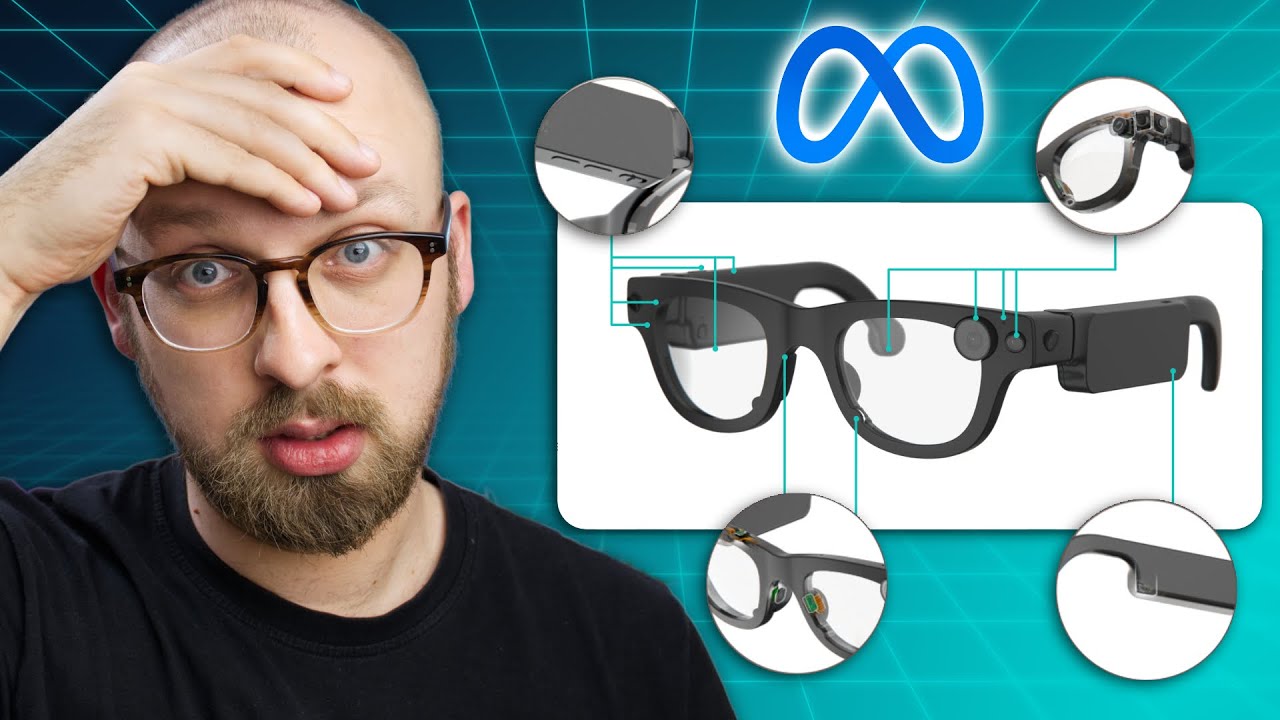The video highlights recent technological advancements and product launches, including Meta’s experimental Arya Gen 2 smart glasses with advanced sensors and health features, and Samsung’s upgraded foldable phones with improved design and camera systems, alongside industry shifts like AI platform changes and upcoming device releases. It also discusses ongoing industry controversies related to privacy, data scraping, and AI regulation, emphasizing the rapid pace of innovation and the complex ethical debates surrounding new tech.
This week, Meta unveiled their new Arya Gen 2 smart glasses, which are both impressive and somewhat unsettling. These experimental glasses feature a 12-megapixel RGB camera, four high-dynamic-range computer vision cameras with global shutters for less distortion, and multiple sensors for spatial mapping. They also include inward-facing eye-tracking, hand-tracking, and heart rate monitoring, creating a comprehensive health and social interaction suite. Additional features include bone conduction microphones and built-in radio technology for syncing with nearby glasses, enabling shared experiences. Currently, these glasses are only available for research testing, highlighting Meta’s focus on pushing the boundaries of wearable tech despite privacy concerns.
Samsung’s foldable phone lineup is also getting a significant upgrade with the upcoming Galaxy Z Fold 7 and Flip 7 series. The company teased a slimmer, wider foldable design with a more powerful camera system, aiming to compete with Chinese manufacturers who have led in foldable hardware innovation. Leaks suggest the new devices will feature up to 16GB of RAM and 1TB of storage, along with new color options like coral red. Samsung is also expected to incorporate re-engineered camera modules, similar to their approach with the Galaxy S25 Ultra, which could improve the slimness and performance of foldable devices, signaling a focus on refining foldable tech for mainstream adoption.
There are reports that Samsung might replace their Gemini AI platform with Perplexity on upcoming phones, including the Galaxy S26 series. Perplexity has already been integrated into Motorola devices and is being considered as a default assistant, potentially even replacing Google Search. The company is exploring extensive AI features, possibly building an AI-infused operating system. This move reflects a broader industry trend of integrating advanced AI assistants into smartphones, though questions remain about whether Perplexity will outperform existing solutions or simply serve as leverage against Google and other competitors.
In the broader tech landscape, several notable product and software updates were highlighted. The Nintendo Switch 2 is confirmed to be launching, along with accessories like a charging case with a built-in power bank. OnePlus announced the new Pad 13, a large 13.2-inch tablet with upgraded specs. Apple’s upcoming 45W charger leaked, supporting faster wireless charging standards, hinting at improvements in charging technology. Additionally, WWDC is expected to introduce new features for AirPods, including camera controls and sleep detection, while leaks suggest the Fairphone 6 will feature a modular back and a competitive price point.
Finally, the video touched on various industry controversies and legal battles. OpenAI is under scrutiny for being forced to retain all ChatGPT logs, including deleted chats, due to a court order, raising privacy concerns. Reddit is suing Anthropic for scraping data without permission, reflecting ongoing tensions over AI training data. Meanwhile, AI licensing negotiations are underway between major music companies and AI developers. In automotive innovation, Volvo introduced a multi-adaptive seat belt system that adjusts protection based on individual data during a crash, showcasing advancements in safety technology. Overall, the week was packed with groundbreaking tech, industry shifts, and ongoing debates about privacy and AI regulation.
